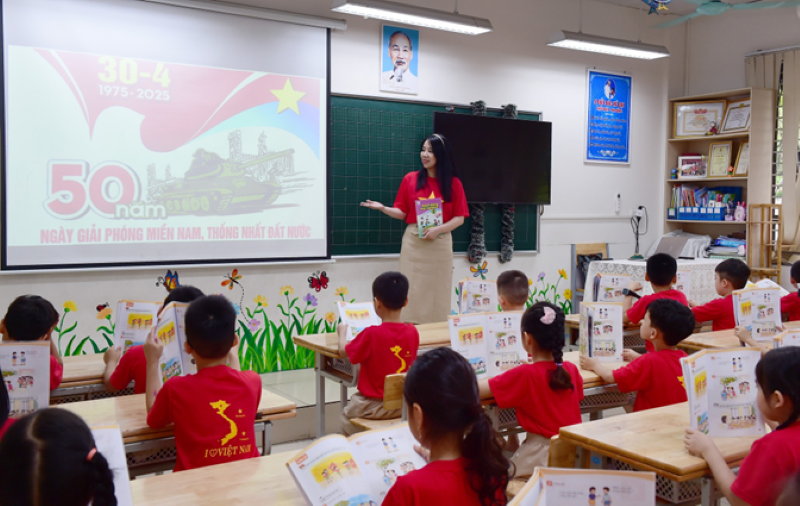
Strategic vision in the context of globalization
In the context of globalization, digital transformation and the 4.0 industrial revolution taking place strongly, Vietnamese education is facing an urgent need for fundamental and comprehensive innovation to fulfill the mission of "improving people's knowledge, training human resources, and nurturing talents".
Since the 2000s, the policy of socializing education has been clearly affirmed in important guiding documents: The 8th Conference of the Central Executive Committee of the Communist Party of Vietnam (11th tenure) passed Resolution No. 29/NQ-TW dated November 4, 2013 on fundamental and comprehensive innovation of education and training to meet the requirements of industrialization and modernization in the conditions of a socialist-oriented market economy and international integration.
The National Assembly issued Resolution No. 88/2014/QH13 dated November 28, 2014 on innovation of general education programs and textbooks, contributing to fundamental and comprehensive innovation of education and training.
On March 27, 2015, the Prime Minister issued Decision No. 404/QD-TTg approving the Project on innovation of general education programs and textbooks. The latest document of the Party is Conclusion No. 91-KL/TW dated August 12, 2024 of the Politburo, identifying 8 tasks to continue implementing Resolution No. 29-NQ/TW dated November 4, 2013. The Government has issued an Action Program to implement Conclusion No. 91 of the Politburo in Resolution No. 51/NQ-CP dated March 18, 2025.
Based on the summary of more than 20 years of implementing Resolution 29 of the Central Committee and analyzing development requirements in the new context, the Politburo will soon issue a Resolution on modernization and breakthrough development of education and training by 2045.
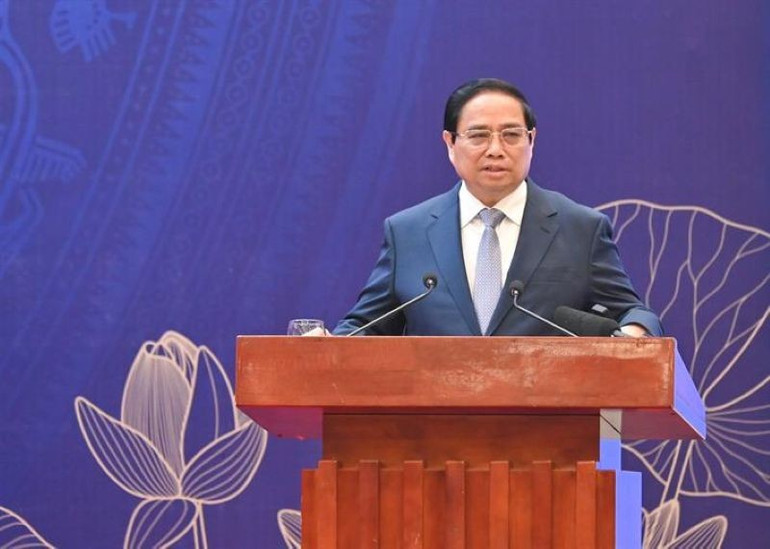
At the conference to summarize the 2023-2024 school year and deploy tasks for the 2024-2025 school year of the Ministry of Education and Training, Prime Minister Pham Minh Chinh affirmed that education and training need to be given due attention to create a driving force to promote rapid and sustainable national development.
The Prime Minister noted that to successfully carry out the cause of fundamental and comprehensive innovation in education and training; along with the leadership, management and operation of the Party, the State and the education sector, it is necessary to have the determination, efforts and actions of each teacher, each student, each parent, each family, the community and the whole society. This shows the viewpoint of the head of the Government on the central role of education, affirming the importance of mobilizing all social resources to participate and accompany in the cause of reviving the country's education.
In addition, the Prime Minister requested to effectively implement the motto: "Taking students as the center and subject; teachers as the driving force; school as the support; family as the fulcrum; society as the foundation".
Efforts to change the quality of education
Implemented from the 2020-2021 school year, the 2018 General Education Program is a major reform, shifting the focus from "teaching words" to "teaching people", helping students develop comprehensively in terms of qualities and abilities; enhancing life skills education, experiential activities, and career guidance; expanding elective subjects according to students' interests and career orientation; innovating testing and assessment towards the progress of learners.
In addition, schools and teachers are empowered to proactively choose textbooks and develop educational plans that are appropriate to reality. Meanwhile, textbooks are compiled in the direction of developing qualities and abilities, and topics and lessons create conditions for teachers to innovate teaching methods and forms, encourage students to be active and proactive in learning, and focus on developing critical thinking, creativity and practical skills.
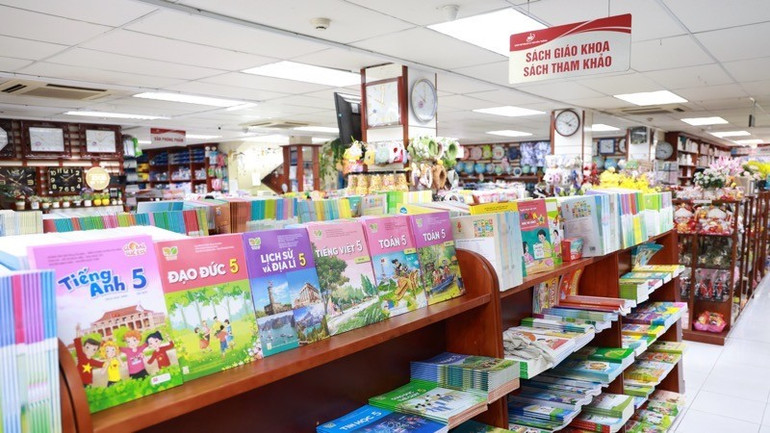
Most opinions agree that the policy of “one program, many textbooks” is consistent with the trend of world education, while also creating conditions for educational institutions to choose textbooks suitable for their students and conditions. From the monopoly mechanism with a single set of textbooks compiled and published by the State, up to now, the whole country has had three main sets of books including “Connecting knowledge with life”, “Creative horizon” and “Canh Dieu” along with hundreds of other textbooks that have been put into use in schools.
Socialization has brought about a wealth of learning materials, giving teachers and schools more choices, while promoting creativity and innovation in teaching methods.
Along with that, the participation of many publishers, experts and teachers in compiling textbooks has mobilized a large amount of intelligence and social resources, contributing to improving the quality of textbooks.
In addition, the socialization of textbooks contributes to reducing budget pressure on the State, promoting the development of digital documents, and applying technology in education, which is considered a lever to help promote the quality of teaching and learning.
Sharing about this issue, Master Tran Thi Mai - Deputy Head of the Department of Primary Education, Hanoi School of Education Training said: "As someone working in the education sector, I think that having many sets of textbooks is a positive step forward, helping teachers proactively choose materials suitable for students and teaching conditions. This also encourages competition and creativity in compiling textbooks, contributing to improving the quality of education".
According to Master Tran Thi Mai, “one program, many sets of books” brings advantages such as: increasing flexibility for teachers, diversifying approaches to content and encouraging creativity in teaching. However, there are also some difficulties in assessment and evaluation, requiring teachers to invest more time in thorough research. Therefore, professional training and support to promote the effectiveness of this model is always necessary.
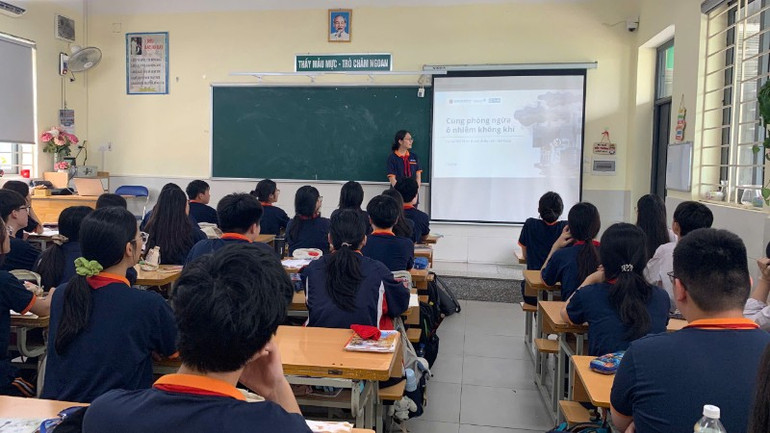
“As a lecturer at the Hanoi School of Education Training, responsible for providing professional training for teachers at all levels in the city, we always accompany teachers, training them in the application of artificial intelligence (AI) to support the development of educational plans; supporting the teaching of subjects according to the 2018 General Education Program. This can also be considered as an additional support for teachers when using textbooks as a teaching tool to achieve the best results,” added Master Tran Thi Mai.
Socialized resources – The fulcrum for comprehensive development
Not only textbooks, socialization has contributed to improving the appearance of the education system in terms of both quality and facilities: The network of non-public schools is increasingly expanding, with thousands of private schools and tens of thousands of private preschool groups. Private universities are increasingly asserting their position in the higher education system.
Using social resources for education is not a new story in countries around the world. In the United States, the “charter school” model is very popular. This is a type of public charter school or authorized school that is privately built and managed but is funded and supervised by the government. In Nordic countries (such as Finland, Sweden, and Norway), socialization focuses on cooperation between state agencies and communities to build a strong, free, and high-quality public education system.
In Japan and South Korea, the socialization of education is reflected in the active contributions of large corporations and the community. Businesses often participate in vocational training and sponsor technical education programs, especially in high schools and universities.
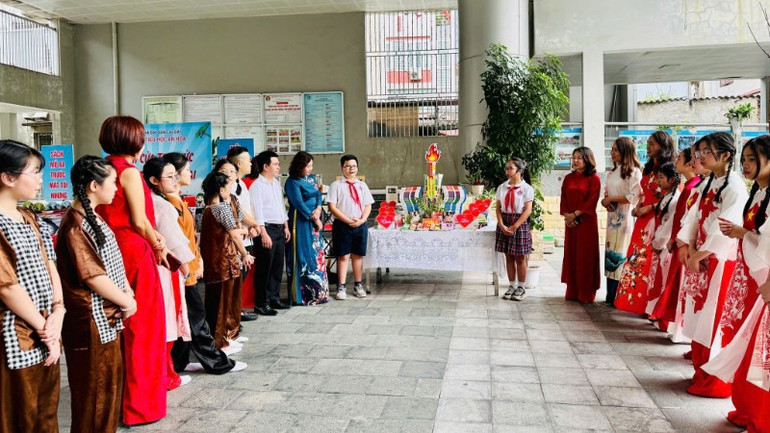
Along with the general trend of the world, in recent years, the trend of socializing education in Vietnam has become increasingly clearer with the participation of non-state components in providing educational services.
Private schools and non-public educational institutions are increasingly developing, however, the public education system still plays a leading role and is strictly controlled by the State. Meanwhile, in public institutions, socialized education activities have contributed to the goal of building increasingly spacious, clean, and beautiful schools and classrooms, creating the best conditions for students to go to school to study and practice.
However, socialization does not mean commercialization, but rather the process of mobilizing the whole society to participate transparently and responsibly in the cause of education. Continuing to promote socialization in a fair, effective and humane direction is a necessary step to realize the vision of a humane, liberal and sustainable education in the global era.
Source: https://nhandan.vn/xa-hoi-hoa-giao-duc-dong-luc-giup-he-thong-giao-duc-quoc-dan-chuyen-minh-hieu-qua-post895563.html




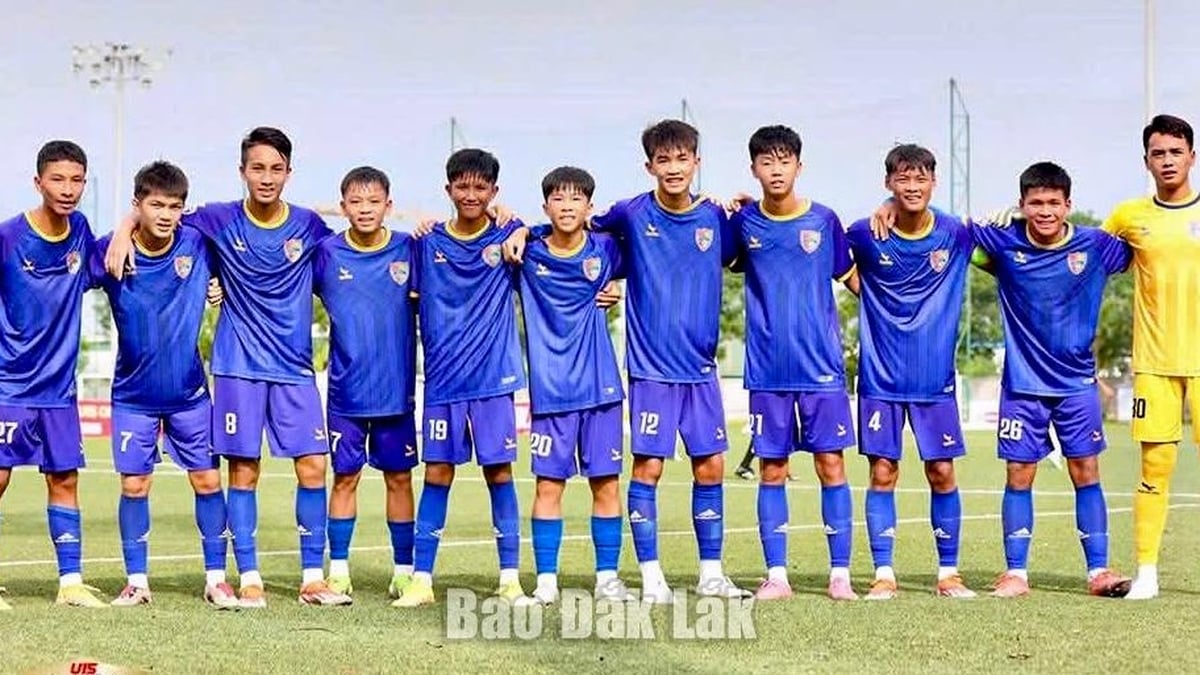
![[Video] New advances in technology for identifying martyrs' remains](https://vphoto.vietnam.vn/thumb/1200x675/vietnam/resource/IMAGE/2025/7/26/ef0db1b91ceb445badc48179e7d272a1)

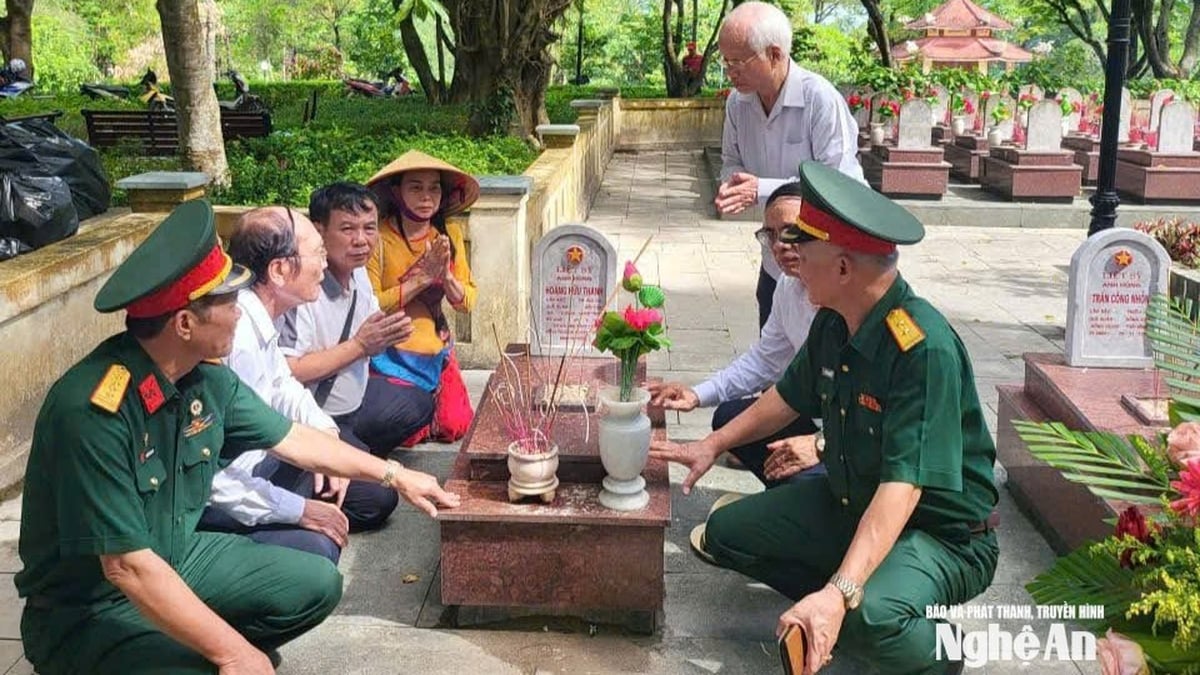


![[Photo] National Assembly Chairman Tran Thanh Man receives Chairman of Morocco-Vietnam Friendship Association](https://vphoto.vietnam.vn/thumb/1200x675/vietnam/resource/IMAGE/2025/7/26/b5fb486562044db9a5e95efb6dc6a263)
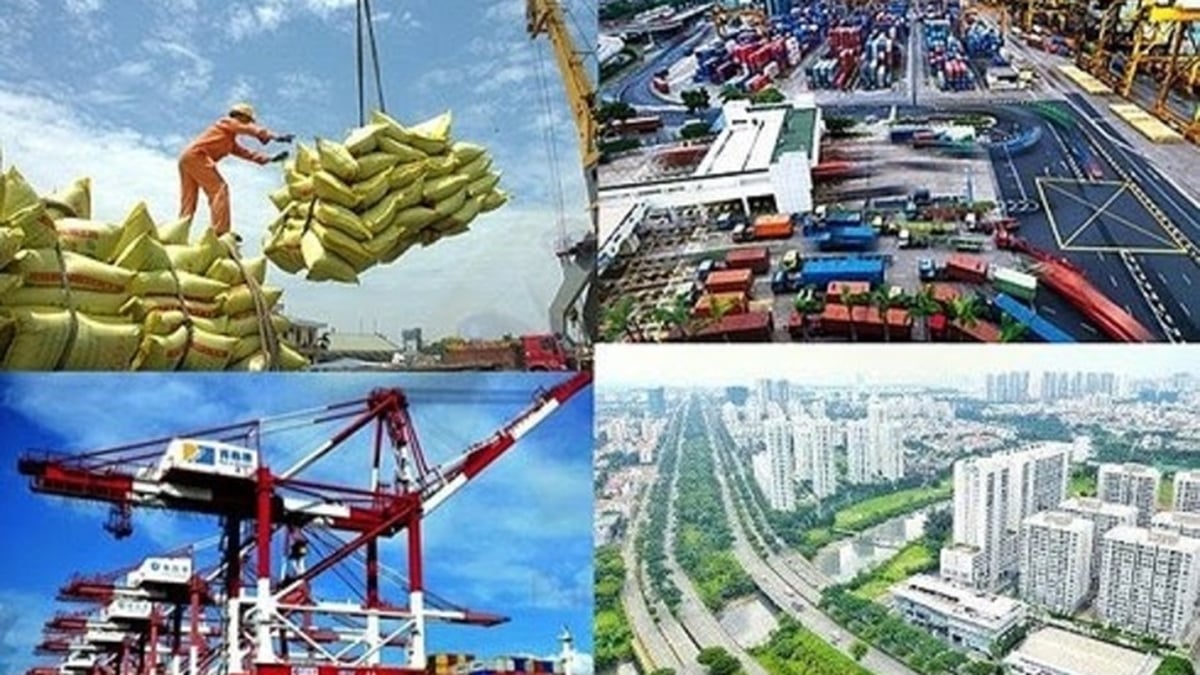




















































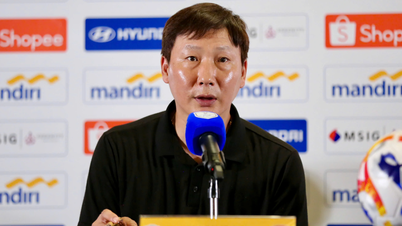

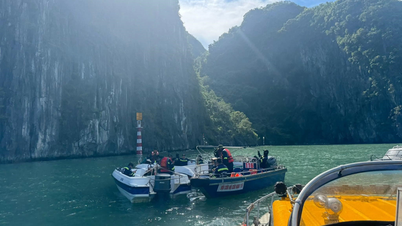








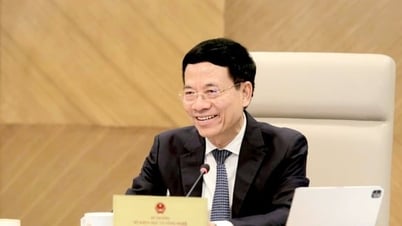

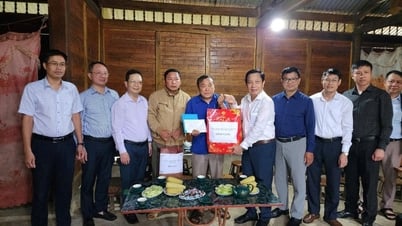
























Comment (0)